Everlane’s new Soho flagship, the e-tailer’s first brick-and-mortar store, embraces its ethos of transparency.

Consider the online purchase of one of Everlane’s signature cashmere crewnecks: Before even hitting “add to bag,” you will learn that the sweater originates in a knitwear factory in Dongguan, a city of eight million in China’s Pearl River Delta. You will learn that this facility employs 800 workers, many of whom enjoy playing mah-jongg on the weekends. And you will learn that the base cost to produce the sweater is $45, and it will be sold to you for $100.
This practice—this minute attention to detail and narrative—is part of what Everlane calls “radical transparency,” an ethos that both underpins the company’s identity and drives its business model. “I think people are looking for brands that stand for something,” says Michael Preysman, who launched the San Francisco–based company in 2011. “We’ve done it by being careful about what we do.”
That deliberate approach is working. Everlane today produces more than 20,000 T-shirts a month. Recode reported the company earned north of $50 million in its fifth year. Products are regularly wait-listed; last summer its Day Heel had a 28,000-person queue.
Everlane managed to achieve such cult status without opening a single brick-and-mortar store. In fact, in 2012 Preysman swore to the New York Times that he would “shut the company down” before venturing into permanent retail.
Denne historien er fra February 2018-utgaven av Metropolis Magazine.
Start din 7-dagers gratis prøveperiode på Magzter GOLD for å få tilgang til tusenvis av utvalgte premiumhistorier og 9000+ magasiner og aviser.
Allerede abonnent ? Logg på
Denne historien er fra February 2018-utgaven av Metropolis Magazine.
Start din 7-dagers gratis prøveperiode på Magzter GOLD for å få tilgang til tusenvis av utvalgte premiumhistorier og 9000+ magasiner og aviser.
Allerede abonnent? Logg på
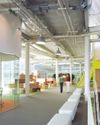
No New Buildings
The energy already embodied in the built environment is a precious unnatural resource. It’s time to start treating it like one.

The Circular Office
Major manufacturers are exploring every avenue to close the loop on workplace furniture.
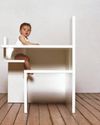
Signs of Life
Designers, curators, and entrepreneurs are scrambling to make sense of motherhood in a culture that’s often hostile to it.
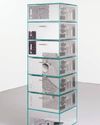
Interspecies Ethic
In probing the relationship between humans and nature, two major exhibitions question the very foundations of design practice.
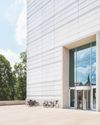
Building on Brand
The Bauhaus turned 100 this year, and a crop of museum buildings sprang up for the celebration.
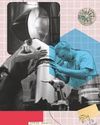
Building for Tomorrow, Today
Radical change in the building industry is desperately needed. And it cannot happen without the building trades.
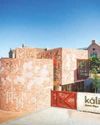
Strength from Within
Maggie’s Centres, the service-focused cancer support network, eschews clinical design to arm patients in their fight for life.

Next-Level Living
The availability of attractive, hospitality-grade products on the market means everyday consumers can live the high life at home.
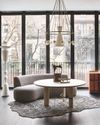
Mi Casa, Su Casa
Casa Perfect creates a memorable shopping experience in lavish private homes.

Enter The Culinarium
AvroKO imagines the future of residential amenities—where convenience, comfort, and sustainability meet.